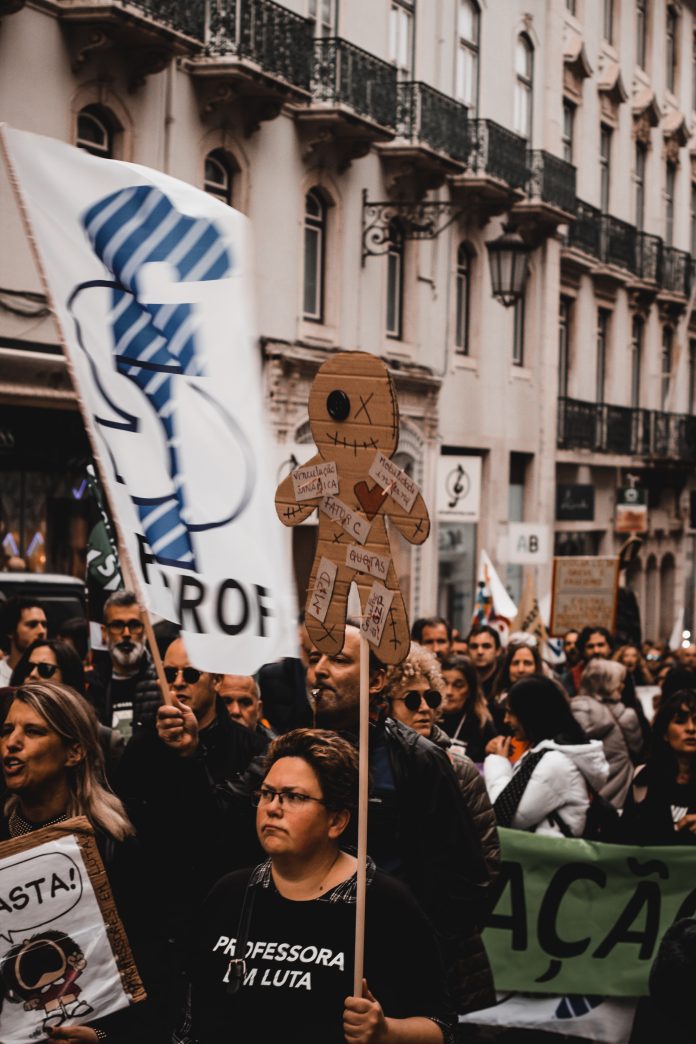Another large protest will be happening in Portugal on Saturday, April 1. It’s part of the Housing Action Days, a week of European demonstrations about regulating house prices.
The protests will be taking place in Lisbon (Alameda), Porto (Batalha), Coimbra (Praça 8 de Maio), Aveiro (Praça Melo Freitas), Braga (Coreto da Avenida Central), and Viseu (Praça da República) at 3 pm.
The movement in Portugal is called “Casa Para Viver” (House to Live), a collective European cry for the right to housing. It could even be a joke on this April Fool’s Day, but it’s no joke in a world where reality seems more incredulous than a bad joke.
Along with other Europeans, who, however, have higher salaries, this outrage comes in the wake of a context of a continuous rise in housing prices, rising interest rates on credit, the expulsion of the Portuguese middle classes from their city centers to the detriment of greater foreign purchasing power, and the growth of housing for tourism purposes.
Together with low Portuguese wages, a perfect social storm has thrown the Portuguese into cyclical crises that are already becoming perennial.
Understandably, this social wrath is growing within an economy that is not directed toward people but rather towards large economic groups, which show exponential profits despite the supposed tribulations of today’s world. People’s lives are moving in the opposite direction.
Next Saturday, those who depend exclusively on their salary to survive will take to the streets. They are young, adult, and elderly.
Some young adults suffer discrimination because of their ethnicity. Others are university students who give up studying because they can’t rent a room, and some young couples cannot start a family or even leave their parents’ homes.
They are also elderly people with meager pensions who are evicted from the typical neighborhoods where they have always lived.
The problem of housing has marked the newspaper agendas, as well as that of politicians who can no longer pretend not to hear the people’s appeals and have presented measures to deal with the issue.
One of them is the coercive lease for vacant houses, a measure that has not been well received by the owners while being met with disbelief by the people.
On April 1st, people are fighting for the right to housing and an end to evictions without a dignified and adequate alternative. They are also asking for an increase in public housing so that, in this way, prices can be regulated.
People are also asking for the freezing of interest rates on mortgages, which has unexpectedly complicated the lives of those who have bought a house and are suddenly faced with an unexpected increase in their mortgage.
This struggle does not come alone but is accompanied by the manifesto of the right to the city, namely the desire for a more humane and democratic urban planning where people are not placed and marginalized in ghettos.
In this desire to give the city back to the citizens, they also ask for an end to the massification of tourism and the submission of the city to this single market, as well as the desire for the right to access decent green and social spaces, in a confrontation that also calls for a more serious commitment in the fight against climate change.
The last demand comes in the wake of all the revolt, the end of labor exploitation and against the rising cost of living, wanting the state to set the price of goods, especially essential consumer goods, ending the privatization of water, electricity, communications, and of course, housing.
The demand for an end to labor precariousness and fairer salaries is more than expected in the set of indignations.
What hangs in the air is the uncomfortable question of when and how?


